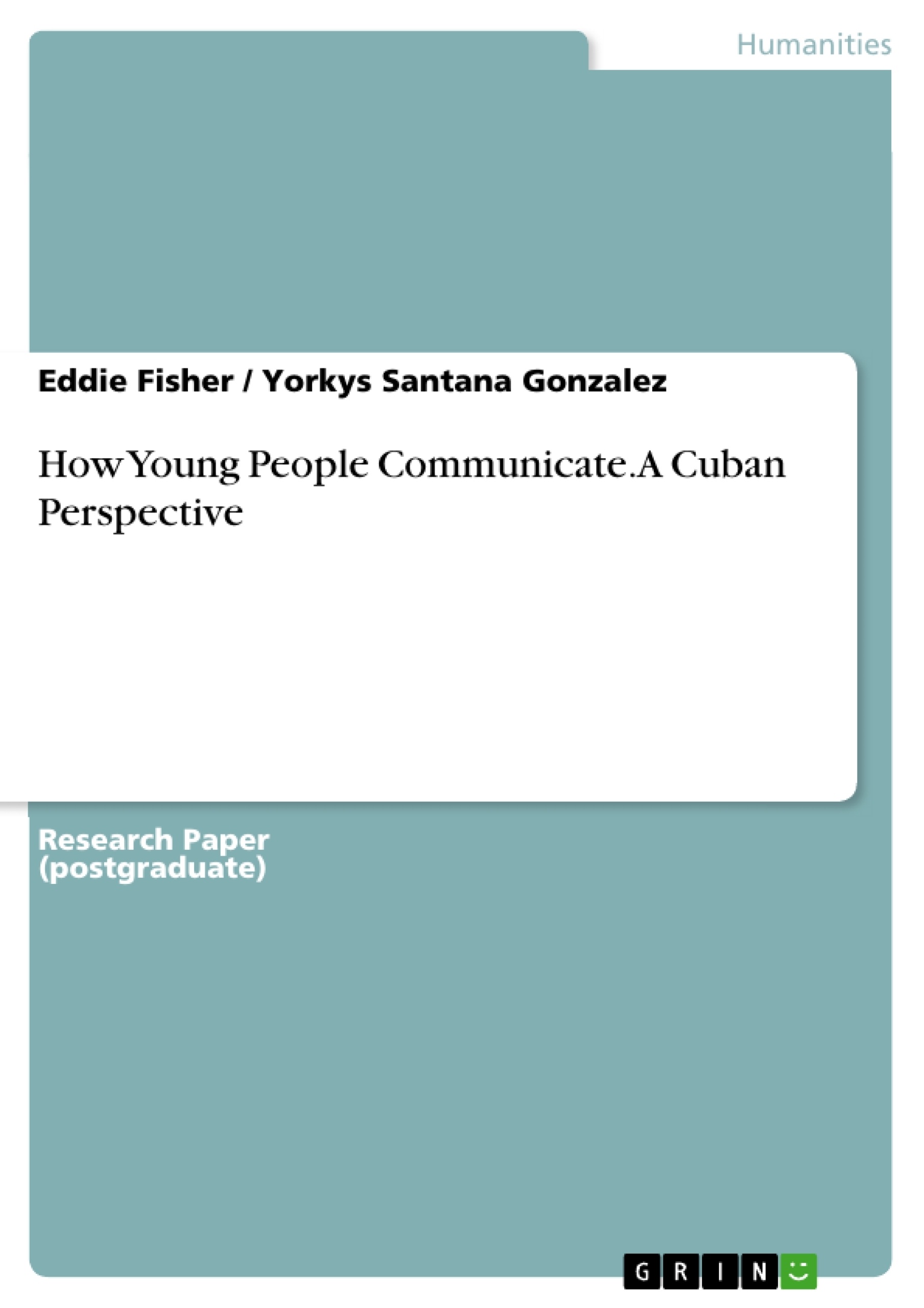This research investigates and provides a deeper insight into what is meant by effective communication, then relates this to how young people in Cuba communicate today and how changes in technology have already affected the communication style of youngsters in this country. The results suggest that face to face communications are diminishing at the expense of digital communications such as SMS and Social Media.This could have adverse affects in future on how well young and older people live and work together in local communities. It is suggested to take proactive steps now to educate young people in the correct use of emerging technology to ensure that they do not lose their ability to communicate effectively with people at all ages in future. Social Psychology has a responsibility to improve the lives of people at all ages. It could become the driving force to educate young people how to make good use of the new technology whilst at the same time trying not to lose existing abilities to communicate effectively with people face to face and with respect. The outcome of this research should also be of interest to other countries. The adverse impact of new technology on how young people communicate is now evident world-wide.
Keywords: Face to face communications, technology, social media, attitude, social responsibilities
Inhaltsverzeichnis (Table of Contents)
- Introduction
- Introduction
- Literature Review
- Research Methodology
- Results
- Discussion and Conclusions
Zielsetzung und Themenschwerpunkte (Objectives and Key Themes)
This research aims to delve into the concept of effective communication and its implications for young people in Cuba, exploring how technological advancements have influenced their communication styles. The research seeks to analyze the potential consequences of this shift on intergenerational relationships and community dynamics in Cuba.
- The evolution of communication styles in Cuba, particularly among young people
- The impact of technology on face-to-face interactions and the development of communication skills
- The potential social consequences of the changing communication landscape in Cuba
- The role of social psychology in fostering effective communication practices in the digital age
- The importance of promoting responsible use of technology to ensure healthy communication between generations
Zusammenfassung der Kapitel (Chapter Summaries)
The introduction provides a context for the study, highlighting the University's commitment to social sciences research and its desire to contribute to local communities in Santiago de Cuba. It emphasizes the importance of bridging theory and practice in social sciences research.
The literature review explores existing research on communication, focusing on the process of communication, the distinction between intrapersonal and interpersonal communication, and the role of verbal and nonverbal communication in creating meaning.
Schlüsselwörter (Keywords)
The primary keywords and focus topics of this research are face-to-face communication, technology, social media, attitude, and social responsibilities. The research delves into the impact of technology on communication styles and the implications for social interaction and community building in Cuba.
Frequently Asked Questions
How do young people in Cuba communicate today?
Research suggests a shift from face-to-face communication towards digital methods like SMS and Social Media among Cuban youth.
What are the risks of increasing digital communication?
The study warns that diminishing face-to-face interactions could adversely affect intergenerational relationships and the ability to work effectively within local communities.
What role does technology play in this shift?
Emerging technology is identified as the primary driver of changing communication styles, often at the expense of traditional interpersonal skills.
How can social psychology help?
Social psychology can act as a driving force to educate young people on using technology responsibly while maintaining the ability to communicate respectfully in person.
Is this a problem unique to Cuba?
No, the research indicates that the adverse impact of new technology on youth communication is a worldwide phenomenon.
- Citar trabajo
- Prof Dr Eddie Fisher (Autor), Yorkys Santana Gonzalez (Autor), 2014, How Young People Communicate. A Cuban Perspective, Múnich, GRIN Verlag, https://www.grin.com/document/283236



